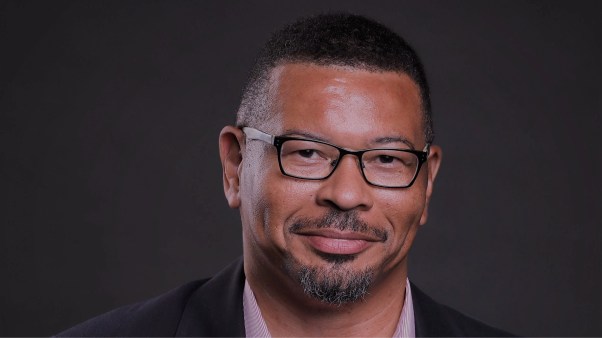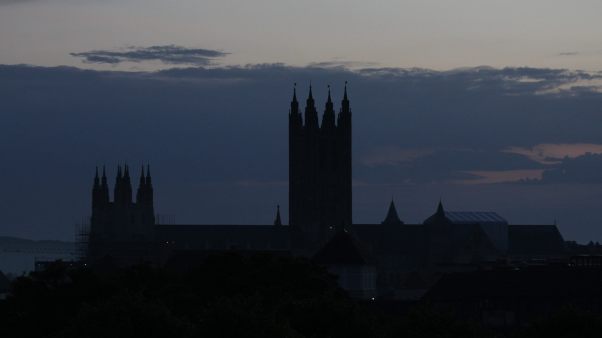Pressing Preus
One of the largest secular press corps in recent memory to cover a denominational meeting turned out for the big showdown convention of the Lutheran Church-Missouri Synod in New Orleans (preceding story). More than forty daily newspapers were represented, as were the wire services, national news magazines, and several radio stations. (Also covering: staffers from about forty religious periodicals.)
Just as the LCMS proceedings were getting under way, the Religion Newswriters Association (RNA) convened its brief annual meeting. The RNA, composed of more than 100 U. S. and Canadian reporters who cover religion in the secular press, had voted the Missouri Lutheran seminary controversy the top religion news story of 1972; therefore the site and time for the RNA meeting was a natural choice. (Barring unforeseen developments, the ongoing LCMS controversy is likely to be voted top story again in 1973 by the RNA.) At its meeting, the RNA gave its James O. Supple Memorial Award for reportorial excellence to Charles Wilkinson of the Hamilton, Ontario, Spectator, the first Canadian to be so honored. Betty Brenner of the Flint, Michigan, Journal was runner-up. The Harold J. Schachern Memorial Award for excellence in weekly religion sections went to the Denver Post, whose religion editor is Virginia Culver.
Most of the RNAers were on hand for a press conference with Preus following his reelection as LCMS president. Preus, who feels he has not gotten a fair shake from the press in general, nearly walked out after being badgered by columnist Lester Kinsolving, who coined the uncomplimentary “Chairman JAO” in earlier columns critical of Preus.
Preus indeed has a press problem. Liberals tend to identify with liberals, and most secular reporters are liberally inclined. But, says William MacKaye of the Washington Post, “liberals seem to be more honest and open about what is going on, so the reporter is bound to be more sympathetic.” Refuting MacKaye, another reporter insists that liberals in power circles are just as secretive but “are smoother operators.” There have been occasions when the press was hard on liberals, too. For example, MacKaye points out, reporters incurred the wrath of Presiding Bishop John E. Hines at the Episcopal convention in South Bend after they carped about politicking by liberals and the less-than-honest accounting of money channeled to certain black causes.
There can be other factors that color attitudes of both the reported and the reporters. Sometimes those on the losing side of a vote vent their frustrations and resentment on the press, mistaking fuller coverage of the winning side with bias. Reporter David Runge of the Milwaukee Journal, an inactive Missouri Lutheran, was the object of a hate-letter campaign by Preus supporters after he ran several articles on LCMS affairs, and there have been letter-writing campaigns to editors asking for the scalps of reporters under them—all of which hardly contributes to the cause of objective reporting in the future. But some anti-Preus writers seldom if ever look in personally on Preus and LCMS affairs and do not bother to hear him out; Preus probably has reason to question their fairness.
James L. Adams of the Cincinnati Post and Times-Star, a member of the Plymouth Brethren, believes that many reporters viewed the LCMS proceedings as another Scopes trial involving primarily academic freedom and other apple-pie issues. “Understanding the root issues requires a theological sophistication that most secular reporters don’t have,” he says. “They do have an awareness of politics, and this comes through in their reporting, especially if they don’t like what they see.”
At any rate, Preus appears in a less favorable light than Concordia president John Tietjen and his faculty in the stories by another James Adams, religion writer for the St. Louis Post-Dispatch, which covers the LCMS headquarters beat. Yet Preus has something to glow about. After his reelection, the rival St. Louis Globe-Democrat in a prominent editorial congratulated him for his “impressive victory” and wished him “every success” because the LCMS “needs the type of strong leadership he can provide.”
None of the press people at New Orleans could remember when a major daily last did something like that.
EDWARD E. PLOWMAN
Christian Reformed Church
“Constitutional” but non-practicing homosexuals were granted full membership—including the right to hold ecclesiastical office—by the Christian Reformed Church (CRC) at its annual meeting held recently in Grand Rapids. The 148 synodical delegates, representing the CRC’s 718 churches and 155,000 members, defined a “constitutional homosexual” as “biologically or psychologically” predisposed to “erotic attraction for the same sex.” The Synod declared that explicit homosexual practice “must be condemned as incompatible with obedience to the will of God as revealed in Holy Scripture,” and summoned its churches to “exercise the same patient understanding of and compassion for the homosexual in his sins as for all other sinners.” The biological and/or psychologically predisposed homosexual (male or female) was said to reflect the brokenness of our sinful world,” and for his “disordered sexuality … may himself bear only a minimal responsibility.” Such homosexuals, if Christians, should be “wholeheartedly received by the church as a person for whom Christ died,” and “not tempted by rejection and loneliness to seek companionship in a ‘gay world.’ ”
The synod also addressed itself to the rise of neo-Pentecostalism within its churches. According to John Stek, professor at Calvin Seminary, “There are a dozen Christian Reformed ministers who quietly claim to have had charismatic experiences.” The doctrine of a “second blessing” baptism of the Holy Spirit was rejected as unbiblical, but both clergy and laymen who claim such experiences are to be accepted as long as they do not press their claims in such a fashion that would violate other teachings of Scripture or the peace and unity of the church.
In other actions the synod:
• Appointed a new committee to study the question of women and ecclesiastical office.
• Adopted a $10,000,000 denominational budget.
• Elected Dr. Leonard Greenway, first-time synodical delegate, as the president of the denomination.
• Reasserted that biblical revelation can be defined only as saving revelation.
• Adopted declarations that defined church office in terms of service and function.
• Rejected a proposal that marriage is constituted solely by a couple’s mutual pledge to fidelity (a view advanced by the Toronto-based Association for the Advancement of Christian Scholarship) and that divorce is warranted for any form of infidelity, whether physical or spiritual.
• Favored amnesty for all conscientious objectors.
JAMES DAANE
Canadian Presbyterians
The 99th General Assembly of the Presbyterian Church in Canada heard that the denomination’s total membership had declined by 11 per cent in the past eight years and that the total number of congregations had declined by 100. But with membership at 179,267, it’s still Canada’s third largest Protestant body, though well behind the United and Anglican churches. In recording the loss, the report pointed out that 126 churches were closed or amalgamated, and twenty-six new congregations begun.
In seeking to resolve contention over the common use of church buildings by Roman Catholics and Presbyterians, the delegates voted to commend the practice “where it would meet an urgent need, or where such action would serve as a unique expression of common witness to the community.” Twentieth-century disciples of John Knox who might object to alleged Romish idolatry found themselves on the receiving end when the Assembly’s Committee on Church Doctrine directed similar criticism toward those who opposed such joint use of facilities. Declared the committee: “The Reformed Faith is the great enemy of idolatry and since we of the Reformed Faith recognize no holy men, holy places, nor any holy things, the equating of the church building with the Church rather than with the people assembled to hear the word is idolatrous.”
In other action, a resolution proposed from the floor by Waterloo minister Walter F. McLean called on Canadians to boycott certain brands of instant coffee as a protest against “forced labor” in Angola. The resolution charged that 125,000 Africans in the Portuguese province were forced to work for as little as $7.50 per month in plantations that produced the coffee, and that a 30 per cent export tax maintained 62,000 Portuguese troops in Angola. The resolution passed, and new moderator Agnew Johnston was asked to visit the companies involved to protest Angolan work methods.
LESLIE K. TARR










